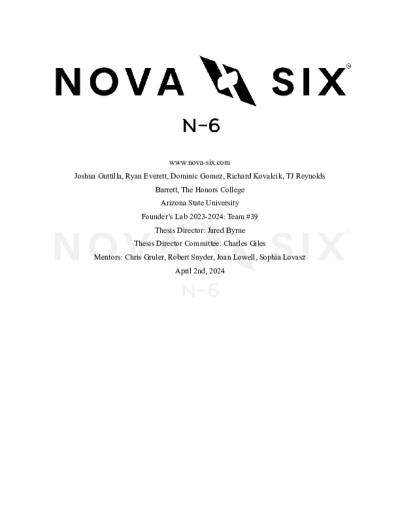Filtering by
- All Subjects: Start-Up
- Creators: Department of Management and Entrepreneurship


I gathered research by surveying undergraduate students at Arizona State University. The questions in this survey dealt with job search values, CSR knowledge, CSR interest and more. Throughout this survey, I largely focused on the differences between business and non-business students. There is evidence in this study to suggest that all groups of students value working for a socially responsible company, but business students are more familiar with these companies and more likely to research them. There is not a consensus on what companies students view to be socially responsible, but there are common factors in what students look for in a Corporate Social Responsibility program. This study has a number of practical implications for companies looking to attract the best talent based on their Corporate Social Responsibility initiatives. Recommendations are based on survey findings and research from secondary sources.

Complete Marketing and Implementation Strategy for an Exclusive Student Rental Car Company at Arizona State University


SparkUp! is a solution that was created by Jose Montes and Ninad Kulkarni in September of 2021. The pair noticed a few needs that they could help solve within the ASU community. Due to the Covid-19 pandemic, the average students' college experience was completely uprooted and replaced with asynchronous learning and interactions which made it difficult for students to engage with other fellow students and make new friends. This also caused students to develop sedentary lifestyles since they no longer had to walk to campus, and they developed a routine of staying confined to their dorms throughout the day. SparkUp! is a Social Media app concept that solves these issues by connecting ASU students with other fellow students by helping them engage with one another in outdoor physical activities. Members can create and host their own hiking, cycling, kayaking, or other outdoor activity and they can set them for private or open use. Users can request to join an event by RSVPing through the app, and they also can connect with their new connections by utilizing the social media aspect of the app. Lastly, the app also tracks and maintains activity metrics such as miles traveled, steps taken, and overall time spent engaging in an activity. Through the needs discovery phase which took part from September-December 2021, the solutions that SparkUp! offers were validated. This prompted further analysis which led to an overall PESTLE analysis of SparkUp!’s overall potential ecosystem, the creation of a marketing strategy and the creation of an Alpha version of the app so that potential users could test the initial designs of the concept. This testing was done during April of 2022 which is aiding in gathering the data necessary to create a Minimal Value Product for future release.
